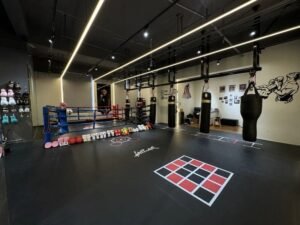How Can Wholesalers Easily Import Rubber Gym Flooring Without Experience
Yes, you can import rubber gym flooring directly from a manufacturer like us with zero...
Sep
What are the 4 Key Metrics for Choosing Durable Gym Flooring
As an R&D engineer in this field, I can tell you the answer isn’t just...
Sep
How Can You Sell Gym Flooring With Zero Inventory
This is achieved through a dropship partnership with a flooring manufacturer. You, the equipment wholesaler,...
Sep
Why Gym Flooring Should Be in Your Equipment Order
Integrating gym flooring into your equipment order is a strategic decision, not an add-on. It...
Sep
The Wholesaler Guide to Selling Gym Flooring
By bundling gym flooring with equipment, you solve your client’s most significant project risks: budget...
Sep
The Ultimate Guide to Wood Look Rubber Flooring Rolls
Wood-look rubber flooring is a multi-layer composite material, engineered by laminating a high-durability, printed vinyl...
Sep
What Contractor Must Know About Rubber Flooring to Eliminate Rework and Delays
To eliminate rework, a contractor must verify subfloor conditions against technical specs, choose an installation...
Sep
What Is the Official Protocol for Installing Rolled Rubber Flooring
A successful installation is not a matter of opinion; it is a direct result of...
Sep
What Makes Rubber Flooring Easy to Sell
Our rubber flooring’s superiority comes from verifiable metrics: high-purity raw materials, a precisely controlled manufacturing...
Sep
How to TRULY Evaluate Rubber Roller Manufacturer
Evaluate them on their manufacturing method. The majority use high-temperature vulcanization. We do not. Ask...
Aug


![Rubber Mat 20250905165240 (12)[1]](https://meettfit.com/wp-content/uploads/2025/09/rubber_mat_20250905165240_121-300x225.jpg)
![Rubber Mat 20250905165241 (7)[1]](https://meettfit.com/wp-content/uploads/2025/09/rubber_mat_20250905165241_71-300x225.jpg)
![Rubber Mat 20250905165241 (12)[1]](https://meettfit.com/wp-content/uploads/2025/09/rubber_mat_20250905165241_121-300x225.jpg)
![Rubber Mat 202509051652291 (5)[1]](https://meettfit.com/wp-content/uploads/2025/09/rubber_mat_202509051652291_51-300x225.jpg)
![微信图片 20250902173754[1]](https://meettfit.com/wp-content/uploads/2025/09/微信图片_202509021737541-300x225.png)
![Rubber Mat 202509051652291 (8)[1]](https://meettfit.com/wp-content/uploads/2025/09/rubber_mat_202509051652291_81-300x225.jpg)
![Rubber Roll21 (5)[1]](https://meettfit.com/wp-content/uploads/2025/09/rubber_roll21_51-300x225.jpg)
![Rubber Roll (3)[1]](https://meettfit.com/wp-content/uploads/2025/09/rubber_roll_31-300x225.jpg)
![WechatIMG3675[1]](https://meettfit.com/wp-content/uploads/2025/08/WechatIMG36751-300x225.jpg)